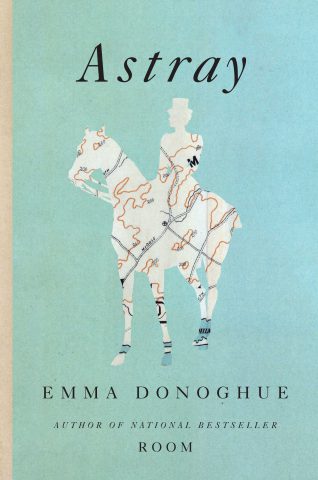Astray is written with a great premise: take an old newspaper article, story, fictional tale or a passing mention from any source, and imagine how that single episode in someone’s life might have actually happened.
It sounds like a seventh-grade writing assignment, but in lesbian author Emma Donoghue’s hands, it works to a level of impressiveness.
Moving through the centuries with her short stories, Donoghue turns everyday situations and period-piece slice-of-life situations into something of which O. Henry and Paul Harvey would be proud. Indeed, some of these tales start with a little sleight of word, poking our emotions in one way, then slowly twisting them into another direction before giving us the real story. You never know where these tales will end, and that’s a good thing.
Consider a photo of a woman, scowling, on the front page of a newspaper. She could’ve been on her way to meet her lawyer, as she is in “The Widow’s Curse.” Newly widowed by a smallpox plague, she was frightened and unsure. She feared destitution. Her lawyer should have feared her.
Maybe the woman was escaping. In the photograph, she appeared to be white, but that doesn’t mean anything. A man who’s cruel to his slaves can be cruel to his wife, too. Or perhaps she was escaping to another country, making a journey with her children to join a husband who was never going to meet her at any pier.
Perhaps she met a guy who’d never love her. When men team up to seek fortune and pan for gold, they often forget that Yukon winters can be long and ferociously cold. Men do things to stay warm and sane. When that happens, women are mostly forgotten.
My only complaint about this book is that it didn’t last long enough. I wanted more, and if that’s the kind of book you have to have, then “Astray” is one to picture yourself reading.


What Do You Think?